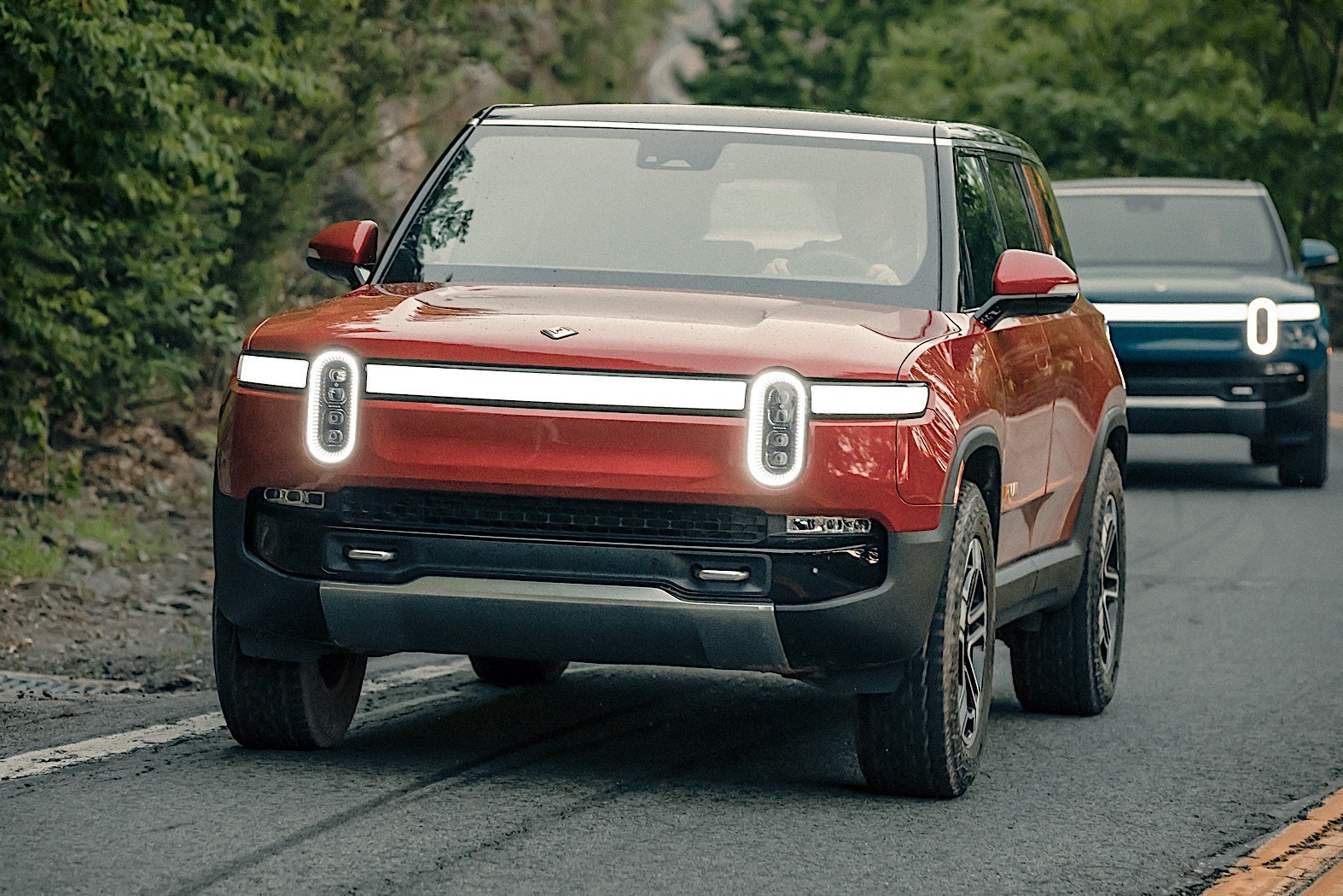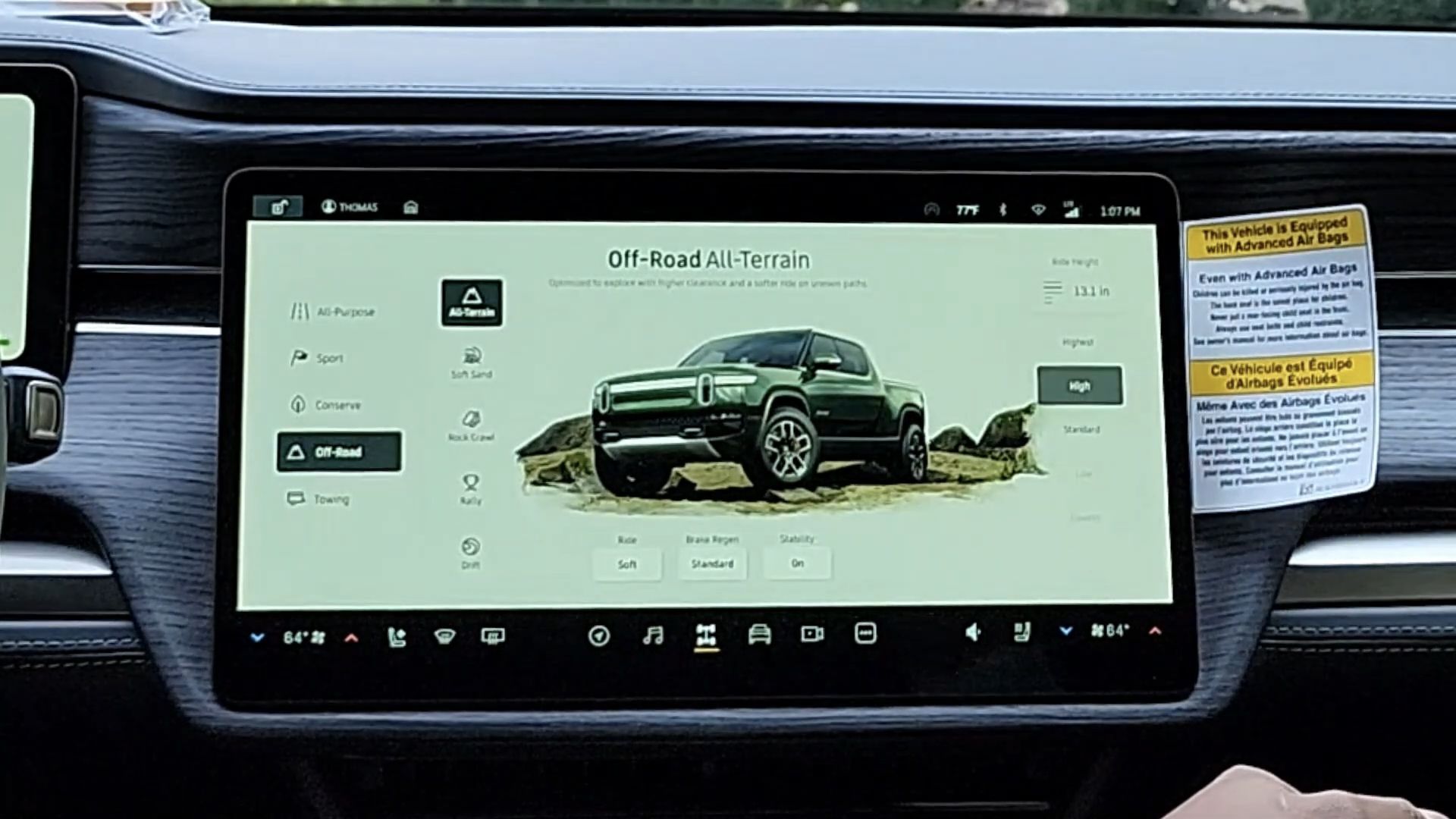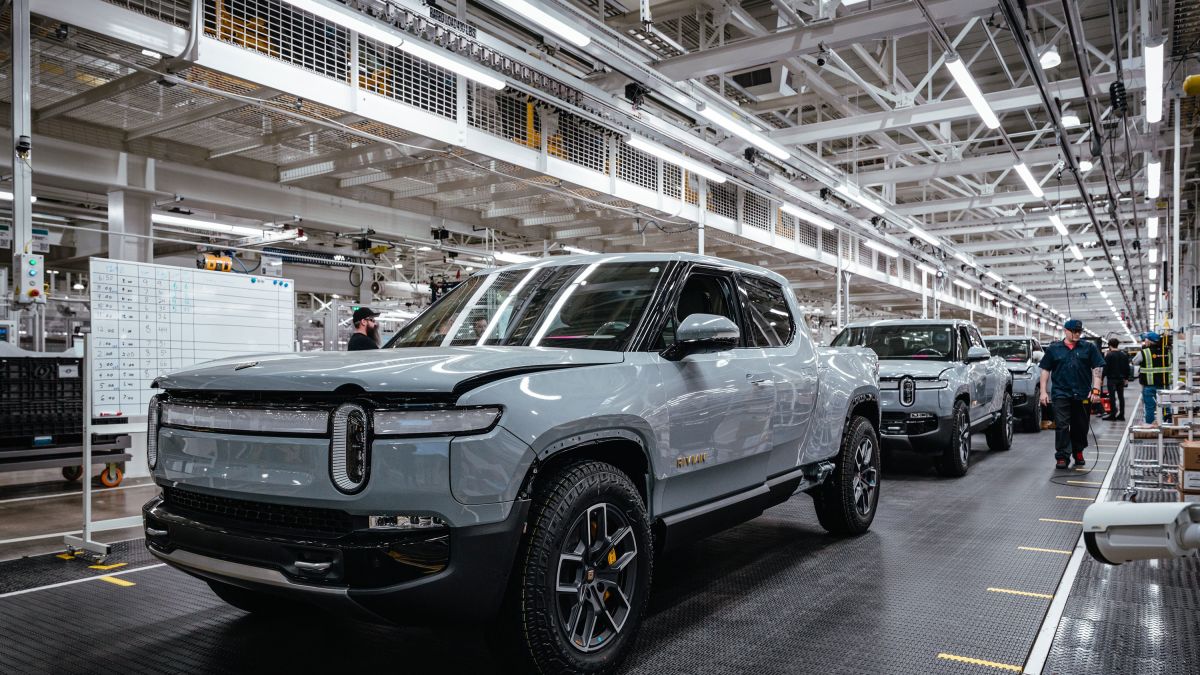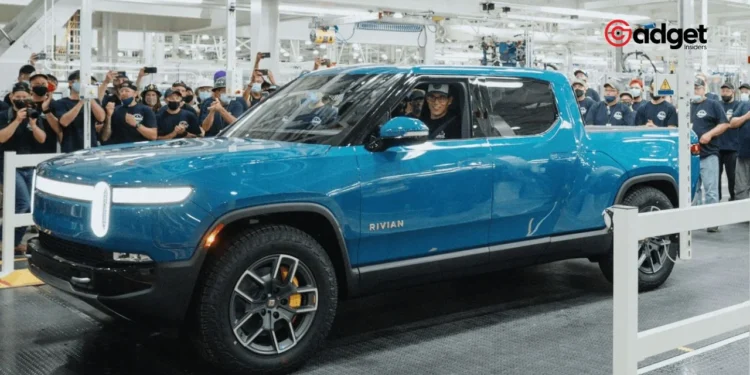The recall impacts a total of 127 units of the R1T and R1S models that were built between February 19 and March 8, 2024. According to the National Highway Traffic Safety Administration (NHTSA), these vehicles left the production line without an airbag label on the dashboard. This label is not just a trivial piece of information; it’s required under the Federal Motor Vehicle Safety Standard 571.208—Occupant Crash Protection.

The regulation specifies that all vehicles equipped with airbags must have a label visible from all front seating positions, typically located on the dashboard or the steering control hub. The purpose of this label is to inform occupants of the airbag’s presence, an essential safety feature.
Rivian’s Simple Fix for Compliance
Addressing the issue, Rivian has opted for a straightforward remedy. The company will mail the missing airbag labels to the affected owners along with a recall notification letter. This approach is practical considering that the label, in many cases, might end up being discarded by vehicle owners along with other temporary paperwork usually found in new cars.

“While this recall might seem minor, it highlights the importance of even the smallest details in vehicle manufacturing and compliance,” said a Rivian spokesperson. The recall is precautionary and aims to ensure that all vehicles meet the full spectrum of federal safety standards.
Previous Safety Recalls
It’s important to note that this isn’t Rivian’s first rodeo with recalls. The company has previously dealt with more significant safety issues, including faulty airbag sensors, improperly secured seatbelts, and issues with the fastening of side airbags. These past recalls were more typical of the types of safety issues that can arise with any new vehicle, particularly from a new manufacturer.

Looking Forward
As Rivian continues to carve out its niche in the competitive electric vehicle market, this latest recall serves as a reminder of the myriad challenges facing new automakers. Managing and maintaining rigorous safety standards is paramount, not only for customer safety but also for the company’s reputation.
The handling of such recalls, even those as minor as a missing label, reflects on the company’s commitment to compliance and safety. As Rivian moves forward, it will be essential to keep these standards at the forefront of their operations to build trust with consumers and establish a long-term presence in the industry.










